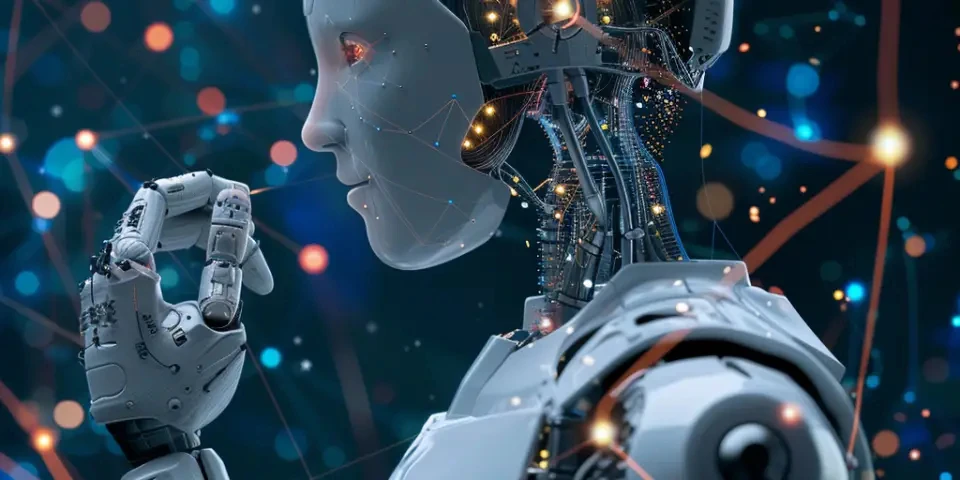AI-Powered Poems Unveil the Artistry of Algorithms
In a world where artificial intelligence (AI) is transforming various industries, it comes as no surprise that it has now ventured into the realm of poetry. AI-powered poems have emerged, showcasing the mesmerizing artistry of algorithms. With the ability to create compelling verses, these AI-generated poems have sparked both curiosity and debate. This article delves into the fascinating world of AI-powered poems, exploring their creation, impact, and potential future.
1. The Birth of AI-Powered Poems
AI-powered poems are the result of advancements in natural language processing (NLP) and machine learning algorithms. These AI systems are fed with vast amounts of poetry from renowned poets to understand the patterns, structures, and techniques. By analyzing this data, AI algorithms gain the ability to generate original poetry that mimics the styles of various poets or even create their own unique poetic voices.

The creation of AI-powered poems involves the following steps:
- Data collection: AI algorithms gather poetry from different sources, ranging from classic to contemporary works.
- Training: Algorithms process the collected data to recognize patterns, learn poetic structures, and understanding emotions conveyed through words.
- Generation: Equipped with the acquired knowledge, AI algorithms generate original poems based on prompts or themes given.
- Refinement: Human intervention plays a crucial role in refining the output of AI-generated poems, ensuring coherence and emotional depth.
2. The Impact of AI-Powered Poems
AI-powered poems have made a significant impact in the literary world. Here are some key impacts:
a. Exploring New Creative Territories
AI-powered poems push boundaries and explore uncharted artistic territories. They challenge traditional perceptions of creativity and provide a fresh perspective on what can be considered "artistic."
b. Preserving and Rekindling Cultural Heritage
AI-generated poems have the capacity to preserve and reintroduce forgotten or less-known cultural heritage. By analyzing historical poetry, algorithms can recreate the styles and emotions of bygone eras, allowing us to reconnect with our past.
c. Enhancing Human Creativity
AI-powered poems can act as a source of inspiration for human poets. They offer unique ideas and perspectives, encouraging poets to build upon these generated verses and create their own masterpieces.
d. Democratizing Poetry
AI-powered poems can make poetry more accessible to individuals who may not have prior knowledge or understanding of the art form. These poems enable a wider audience to appreciate and engage with poetry at various levels.
3. The Controversy and Ethical Concerns
While AI-powered poems have garnered admiration, they have also sparked controversy and raised ethical concerns:
a. Authenticity and Originality
Critics argue that AI-generated poems lack the authenticity and originality that stems from human emotions and experiences. They question whether these poems can truly be considered as art.
b. Copyright and Ownership
The ownership and copyright of AI-generated poems raise legal and ethical debates. Should the algorithms' creators hold the rights to these poems, or should they be considered public domain since they are created by machines?
c. Bias and Representation
AI-powered poems can reflect the biases present in the data they are trained on. The algorithms might inadvertently perpetuate stereotypes or favor certain styles or themes, leading to a lack of diversity in the generated poetry.
d. Impact on Traditional Poets
Some traditional poets may feel threatened by the rise of AI-powered poems, fearing that their craft will be overshadowed and invalidated. However, many argue that AI-generated poems can coexist with traditional poetry, each offering unique contributions to the artistic landscape.
4. Future Possibilities and Challenges
The future of AI-powered poems holds immense possibilities and challenges:
a. Improving AI's Emotional Intelligence
Advancements in AI technology can eventually lead to algorithms that possess a deeper understanding of emotions, allowing them to create poetry that resonates on a more profound level with readers.
b. Collaboration between AI and Human Poets
AI-powered poems can act as collaborative tools, enabling human poets to work alongside algorithms. Together, they can combine their strengths to create groundbreaking poetic pieces.
c. Evolving Poetic Styles
With AI's ability to analyze vast amounts of poetry, it can identify emerging trends, explore new styles, and even create entirely new poetic forms, challenging the traditional notions of what poetry should be.
d. Ethical Frameworks and Regulations
As AI-generated poems continue to evolve, the development of ethical frameworks and regulations becomes crucial. These frameworks can address concerns such as bias, copyright ownership, and algorithmic transparency.
5. Frequently Asked Questions
Q: Can AI algorithms evoke genuine emotions through their poems?
A: While AI algorithms can create poems that convey emotions effectively, the debate on whether these emotions are genuine or simply imitations of human emotions remains unresolved.
Q: Are AI-powered poems replacing traditional poets?
A: No, AI-powered poems are not replacing traditional poets. Instead, they provide a new dimension to poetic creation and can coexist alongside human poets, complementing their work.
Q: Can AI-generated poems win literary competitions or awards?
A: AI-generated poems have already garnered recognition in some literary competitions. However, the decision to allow AI-generated works to compete is subjective and varies across different competitions and organizations.
6. Conclusion
AI-powered poems have revolutionized the world of poetry, showcasing the immense potential of algorithms to create compelling verses. As technology continues to advance, these AI-generated poems offer a glimpse into the future possibilities of human-machine collaboration in the realm of art. Amidst controversies and ethical concerns, it is essential to embrace the opportunities and challenges these poems bring, appreciating the unique contributions they make to the artistic landscape.
References:
1. Johnson, R. (2019). Artificial Intelligence Poetry Is Upon Us, But Is It Any Good? Retrieved from Forbes]
2. Nayak, R. (2020). Artificial Intelligence in Poetry Writing. Retrieved from KDnuggets]
3. Tung, L. (2019). AI Generated? The Art of Writing Poetry Has Become Easier. Much Easier. Retrieved from ZDNet]
Visit Spicy AI and discover the spicy side of connection! Our platform offers personalized AI companions that allow you to engage in flirty banter and explore your wildest fantasies. Connect with your desires today!
Explore your companion in WeMate